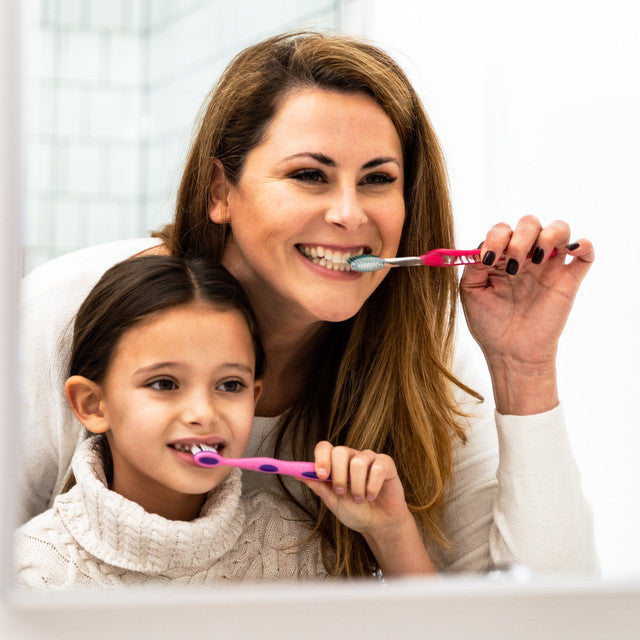Pregnancy is an exciting time for expecting mothers, but it can also be a time of many changes, both physical and emotional. One area that is often overlooked during pregnancy is dental care. However, dental care is incredibly important during pregnancy, not just for the health of the mother, but for the health of the baby as well. In this blog post, we will discuss why dental care is essential during pregnancy and what expecting mothers can do to maintain good oral health.
Why is dental care important during pregnancy?
Hormonal changes during pregnancy can affect a woman's oral health. The increase in hormones such as estrogen and progesterone can cause an increased blood flow to the gums, making them more sensitive, swollen, and prone to bleeding. This condition is known as pregnancy gingivitis and affects between 60% and 75% of pregnant women. Left untreated, pregnancy gingivitis can progress to periodontal disease, a more severe form of gum disease that can cause tooth loss and bone damage.
Pregnancy can also cause changes in eating habits, such as increased snacking, which can increase the risk of tooth decay. Morning sickness, which affects up to 80% of pregnant women, can also increase the risk of tooth decay as stomach acid can erode the enamel on the teeth.
Poor oral health during pregnancy has also been linked to adverse pregnancy outcomes such as premature birth, low birth weight, and preeclampsia. Therefore, taking care of your teeth and gums during pregnancy is essential not just for your oral health but for the health of your baby as well.
What can expecting mothers do to maintain good oral health?
1. Schedule a dental check-up before getting pregnant or during the first trimester.
It's essential to get a dental check-up before getting pregnant or during the first trimester. This will allow your dentist to check for any existing dental problems and provide any necessary treatments. Dental treatments such as X-rays, fillings, and root canals can be safely performed during pregnancy, especially during the second trimester. As a reminder, it is important to tell your dentist that you're pregnant. This will allow your dentist to take extra precautions and avoid any treatments that are not safe during pregnancy.
2. Brush and floss regularly.
Brushing and flossing are crucial for maintaining good oral health. Expecting mothers should brush their teeth at least twice a day and floss daily. If you're experiencing morning sickness, it's essential to brush your teeth immediately after vomiting to prevent the stomach acid from eroding your tooth enamel.
3. Choose the best toothpaste for plaque and tartar. Make sure it has clean ingredients.
Maintaining proper oral hygiene is critical in preventing tooth decay. Use a toothpaste like LivFresh, which is clinically proven to remove plaque 250% better. LivFresh's ingredients are safe for all ages and 100% edible.
4. Avoid sugary and acidic foods.
Sugary and acidic foods can increase the risk of tooth decay. Limit your intake of sugary and acidic foods and drinks and opt for healthy snacks such as fruits, vegetables, and cheese.
5. Stay hydrated.
Staying hydrated is essential for good oral health. Drinking plenty of water helps to wash away food particles and bacteria that can cause tooth decay and gum disease.
6. Rinse your mouth with saltwater.
Rinsing your mouth with saltwater can help reduce inflammation and prevent infection. Mix half a teaspoon of salt in a cup of warm water and rinse your mouth after brushing and flossing.
Conclusion
Dental care is essential during pregnancy for the health of both the mother and the baby. Pregnant women should take extra care of their oral health by scheduling a dental check-up, brushing and flossing regularly, avoiding sugary and acidic foods, staying hydrated, rinsing their mouth with saltwater, and using a non-comedogenic toothpaste like LIVFRESH Dental Gel.

